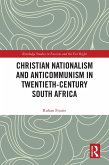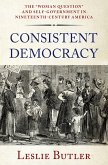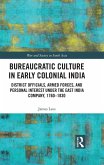This is the companion volume to "Political Catholicism in Europe 1918-1945." Christian Democratic (CD) parties became the dominant political force in post-war Western Europe, and the European People's Party is currently the largest group in the European Parliament. CD parties and political leaders like Adenauer, Schuman and De Gasperi played a particularly important role in the evolution of the core Europe of the EEC/EC after 1945.
This book, for the first time, reveals the roles of the CD parties in postwar Europe, systematically and from a pan-European perspective. All country chapters address the same questions about the parties' membership and social organization; their economic and social policies; and their European and international policies during the Cold War. Rather than simply covering Western Europe, it includes chapters on East-Central Europe in the first years after 1945 before their suppression.
An introductory survey chapter, by eminent British historian Peter Pulzer revealsthe international context for the development of European CD parties in the 20th century; and a comparative chapter - by Anton Pelinka - draws together the main results of the individual chapters from a pan-European perspective. Furthermore, two chapters on the much-neglected transnational cooperation of these parties and their influence on the process of European integration after 1945 complement the country chapters.
This volume (and its companion volume) are research based and will be accessible to undergraduate and graduate students. As Christian Democratic parties are the least researched compared with Socialist or Communist parties, and with no CD parties in the US or the UK, hardly any useful literature exists in English which can be used on 20th century and postwar European history courses, or more specialized history or country courses. This book therefore fills a significant gap in postwar European history, and will prove valuable to researchers a
This book, for the first time, reveals the roles of the CD parties in postwar Europe, systematically and from a pan-European perspective. All country chapters address the same questions about the parties' membership and social organization; their economic and social policies; and their European and international policies during the Cold War. Rather than simply covering Western Europe, it includes chapters on East-Central Europe in the first years after 1945 before their suppression.
An introductory survey chapter, by eminent British historian Peter Pulzer revealsthe international context for the development of European CD parties in the 20th century; and a comparative chapter - by Anton Pelinka - draws together the main results of the individual chapters from a pan-European perspective. Furthermore, two chapters on the much-neglected transnational cooperation of these parties and their influence on the process of European integration after 1945 complement the country chapters.
This volume (and its companion volume) are research based and will be accessible to undergraduate and graduate students. As Christian Democratic parties are the least researched compared with Socialist or Communist parties, and with no CD parties in the US or the UK, hardly any useful literature exists in English which can be used on 20th century and postwar European history courses, or more specialized history or country courses. This book therefore fills a significant gap in postwar European history, and will prove valuable to researchers a
Dieser Download kann aus rechtlichen Gründen nur mit Rechnungsadresse in A, B, BG, CY, CZ, D, DK, EW, E, FIN, F, GR, HR, H, IRL, I, LT, L, LR, M, NL, PL, P, R, S, SLO, SK ausgeliefert werden.









